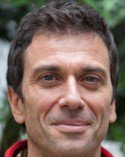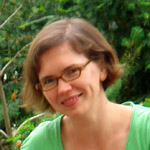Supervisors
Doctoral Study Programme Molecular Genetics and Biotechnology
Supervisor of a doctoral student must be a university teacher, holding a title Assistant Professor, Associate Professor or Full Professor, or researcher with a doctoral degree, with research experiences in the field of the dissertation topic. Supervisors can also be external, not necessarily employed at UNG.
Student can have one or two supervisors. Two supervisors are nominated when the topic of dissertation is interdisciplinary and one supervisor cannot offer adequate expert support in all fields included in the dissertation topic. In case that the candidate has two supervisors, they are considered at the same rank, and take same responsibilities for the student.
Supervisor must offer doctoral student adequate expert support and advice regarding the preparation of the dissertation from the point of view of the scientific content, scientific and technical terminology, and proper layout of the dissertation.
The supervisor of the student cannot be a member of the commission for the evaluation of the dissertation. The supervisors have to attend the dissertation defence but they are not eligible to vote. Students select working supervisor at the beginning of the study, immediately after enrolment in the study program, and informs the director of the study program about his choice. Working supervisor offers doctoral student adequate expert support and advice regarding the choice of the research field and dissertation topic, and according with the research direction, advices the student which elective courses to choose on the program.
The supervisors are formally nominated by the Senate of UNG, at the same time as the Senate nominates the members of the evaluation commission for the dissertation and approves the dissertation title and topic. The director of the study program submits to the Senate of UNG the proposal for nomination of the student supervisor(s), together with the proposal of the members of the evaluation commission for the dissertation evaluation, and the students’ argumentation of the dissertation topic. Doctoral students must submit argumentation of the dissertation topic latest by the end of the second year of study, as defined in the Formal procedures for the submission, examination and defence of the dissertation.
Prof. Dr. Ario de Marco

Research fields: The Molecular Interaction group is specialized in identifying recombinant antibodies that can be used to image cell receptors or to modulate their activity. It developed suitable expression vectors to obtain tags fused to the antibodies that simplify their functionalization and collaborates with nanoparticle and biosensor specialists for exploiting the diagnostic and therapeutic potential of the selected binders. So far most of the efforts have been addressed to molecules involved in tumor progression, but we expect that the plasticity of our panning approach that uses whole cells will be useful for recovering antibodies for analyzing a large array of scientific issues.
E: ario.demarco@ung.si
W: Personal page
Assoc. Prof. Dr. Martina Bergant Marušič

Research fields: Molecular and cell biology, virology, intracellular trafficking
Our current research work is focused on the internalization and intracellular trafficking of non-enveloped DNA viruses, with the special focus on the Human Papillomaviruses (HPV). We are particularly interested in viral infectious processes and molecular mechanisms by which viral genome is trafficked from cell membrane to the nucleus. We are also studying the non-structural properties of the HPV minor capsid protein L2, its post-translational modifications and the role of L2 in the capsid formation. In the future, we are planning to extend the existing knowledge about intracellular trafficking and receptor recycling to studies on tumour progression.
E: Martina.Bergant@ung.si
W: Personal page
Information
Programme director
doc. dr. Martina Bergant Marušič
